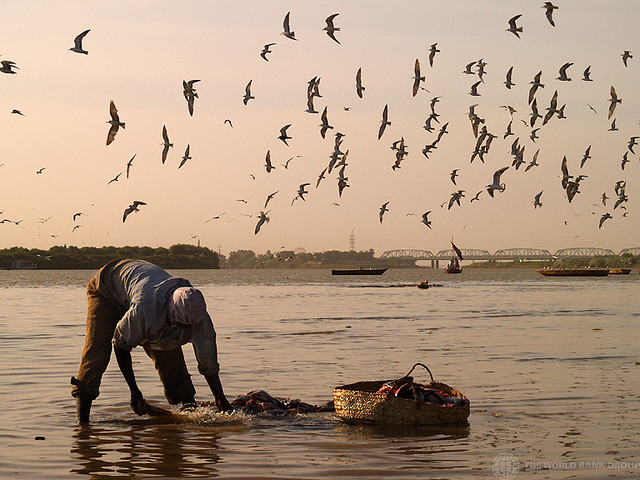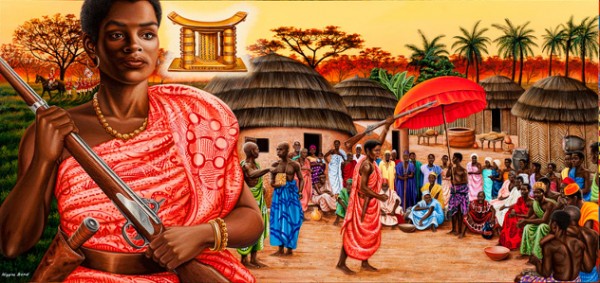The notion of extending legal and civic rights to the environment – lands, oceans, rivers, forests – is intrinsically an African practice and may sound absurd in Europe and America and perhaps unthinkable when first encountered. But viewed historically, it is not so. The entire history of African law, rituals and rites has been an ever-widening extension in those “things” accorded legal rights, and thus constituting a “person” or “persons” within the law.
But the Western World has always been different and their understanding of the environment as “objects” has influenced their outlook on global issues and hence environmental issues.
In Roman law for example, the father had jus vitae necisque – the power of life and death – over his own children. In thirteenth-century England, Jews for example were treated as men ferae naturae, protected by a quasi-inanimate-law, like the laws they had enacted and reserved for the roe and the deer.
Women, particularly married women in Europe and America, only recently were recognized as persons fully capable of holding, legal rights.
So, too, it is only through begrudged evolution – that is still in progress – that rights have been accorded the insane, African Americans, so called “aliens,” even fetuses and Native Americans.
The European school of thought has always started from looking at everything outside the borders of the observer, in this case the white man, as an object. This definition encompasses other white men too. From that premise, in Western Civilization, only the observer is human. And he is, superior, by default.
In perspective, European philosophy has echoed the strong stance on the “cogito ergo sum,” which is Latin for “I think, therefore I am”. It is a philosophical statement famously postulated by Rene Descartes in order to logically prove that he indeed existed.
Descartes concluded that even if he doubted he thought, he must exist in order to doubt; thus since you cannot think for the ‘other’ or read the mind of the environment, these ‘objects’ may just be figments of the imagination. Hence, subject for the white man’s use in existing.
Therefore, these “objects” – the others – if their very existence is threatened, must fight to gain freedom, legal and civic rights before the observer, the human, the white man.
In order to move forward, American Society must tackle the issue of objectification. As long as race, for example, in America is only applied to Black people, as long as white people are not racially observed or seen, they will continue to function as the human norm and everything else an object for their use.
Perhaps a solution lies in beginning to objectify the race of whites and dislodge them from the position of power, with all the inequalities, oppression, privileges and sufferings in its train, dislodging them by undercutting the authority with which they see, speak and act on the environment which is all ours!
But another fresh – although as ancient as the world itself – exists.
In contrast, in Africa, the human form, the African (the Black person) has not been a prerequisite to holding rights. The oceans, rivers, forests, lands and ships still referred to in the feminine gender by traditional society, have long had an independent legal life, often with striking implications.
Through the spread of Africa’s civilization across the world, some of these customs peradventure now linger in Europe having been borrowed through out time and space.
The world of lawyers in Europe and America for example, is “peopled” by such inanimate entities as trusts, corporations, joint ventures, municipalities and nation-states.
This is reason to remember, too, why throughout legal history in Europe and America, each successive extension of rights to some new entity has at first sounded odd or frightening, or even laughable.
For until the rightless thing receives its right, Europeans and White America cannot see it as anything but a thing for their use; witness how the slave South, its consciousness dulled and reinforced by slave-property law, looked upon the African American.
Now, to say that the natural environment should have rights in America and Europe, and throughout the world, is not to say anything so silly as that no one should ever be allowed to cut down a tree.
Human beings have rights, but there are circumstances under which they may suffer the death penalty (though I do not believe in the death penalty). Corporations have rights, but they cannot plead the Fifth Amendment.
By the same token, to say that the environment should have rights is not to say that it should have every right we can imagine, or even the same rights human beings have.
In general, to recognize the legal rights of the environment would involve learning from African traditional law and allowing nature three distinct benefits it is denied under common American, European, and International law.
Not to say that modern Africa is perfect – they are equally bedeviled by globalization’s shackles and have thrown out most of their customs.
Thus the three stipulations include:
First, ‘standing’ – the right to have legal actions instituted on her behalf. It is no answer to say that streams and forests cannot speak. Corporations and states cannot speak either. Lawyers speak for them, as they customarily do for ordinary citizens with legal problems.
We could treat natural objects as we do legal incompetents, human beings who have become vegetables. A court simply designates someone the incompetent’s guardian with the authority to represent him and manage his affairs.
By analogy, when a friend (presumably one of the established environmental groups) of a natural object perceives it to be endangered, the friend should be able to apply to a court to establish a guardianship.
The guardianship would thereafter be the legal voice for the ‘voiceless object,’ instituting actions in her name and appearing before appropriate agencies on her behalf.
Second, when courts make balances of competing interests, as in deciding whether a company that is polluting a stream should have to shut down, it is the competing human interests that they consider exclusively. What does not, but should, weigh in the balance is the damage to the stream itself, to the fish and turtles and “lower” life.
Third, where, relief is granted in an environmental case, there is no reason why damages should not go to the benefit of the environment. The natural object’s portion would be put into a trust fund to be administered by the objects guardian, to defray the costs of aerating a polluted stream, stocking it with fish and algae, and so on.
African traditional law stands to teach us all – Africans as well – a great deal. It makes more sense than what the world is doing now.











Something like respect of the environment is so fundamental that it is not even thought of in African society, but in Western society it’s hardly an afterthought. And people say we are all human beings, we are all the same, but these differences in the way we treat nature tell us otherwise.
We really really really really have to go back and learn from the past. It seems we haven’t come away very far as we think we have.
The environment is the only real legacy we leave posterity and it has to be treated as such.
You dropped the mallet right on the head. All this time that European technology has influenced African innovation, every tool we have invented has been made to exploit the ‘other’ – which you have brilliantly put out here as the ‘object’.
We need to rethink, especially in Africa, and lead the way in thinking about technology that does not exploit the environment. But again, how would we do that if all the continent is slowly and surely being tied and strangled by the extreme capitalism America espouses?
I will be pretty sure We have see this same sort of assertion somewhere else, it ought to be gaining interest using the people.